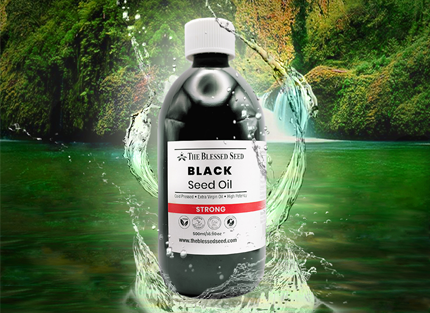Everyone reacts differently to black seed oil. We’re the only company offering 4 different oil strengths, making it easy for you to safely add black seed oil to your life. The strongest oil has 4.17% thymoquinone content.
We are blessed to be presenting the strong black seed oil in the market. This is backed up by our analysis of 4.8% essential oil content and thymoquinone of 2.78% so you know our claims are true.
New to black seed oil? Buying it for infants or children?
Essential oil content 1.5%

Hair Loss

Chronic Migraine

Colds and flu

anxiety and depression

Asthma
Black seed oil’s unique capabilities are found in its essential oils, which can vary from 0.3% to 9%. Most companies have an oil content of 1% or less. Our strongest oil contains a guaranteed essential oil content of up to 9% with 3.29% thymoquinone — over 9X more than most other brands.
Simply put, our black seed oils are the strongest available in the world

Founded in 2002, The Blessed Seed has been helping individuals to be provided with the blessings of these products contained in Nigella Sativa— or black seed.
Many of our customers discover black seed as powerful natural product. We’ve dedicated ourselves to bringing you the best quality and the strongest of properties of black seed oil in the market.
Not satisfied? Return your product and we’ll give you a full refund— even if the product is empty